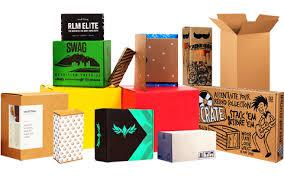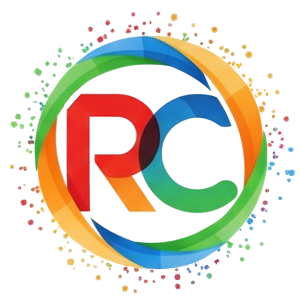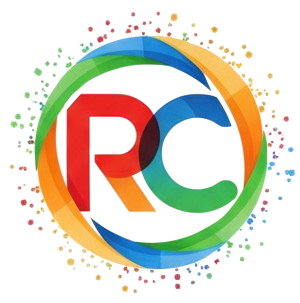The Ultimate Guide to Custom Packaging Boxes: Enhancing Brand Value and Customer Experience

Introduction
In today's competitive market, businesses are constantly looking for innovative ways to differentiate themselves. One of the most effective strategies is custom packaging boxes, which go beyond traditional packaging by incorporating branding, design, and functionality. These customized solutions not only protect products but also enhance brand identity and customer experience.
Why Custom Packaging Boxes Matter
Custom packaging is more than just a container for products—it plays a crucial role in branding and marketing. Here’s why custom packaging matters:
1. Brand Identity and Recognition
Custom packaging reflects a brand’s identity, helping customers recognize and remember it. Using consistent colors, logos, and unique designs creates a lasting impression.
2. Enhanced Customer Experience
Premium packaging enhances the unboxing experience, which can lead to social media shares and word-of-mouth marketing. Customers associate well-packaged products with quality and professionalism.
3. Product Protection
Custom CBD packaging boxes are designed to fit the product perfectly, minimizing damage during transportation. This is especially important for fragile or high-value items.
4. Sustainability and Eco-Friendliness
With growing environmental concerns, businesses are adopting eco-friendly packaging materials. Custom packaging allows brands to use biodegradable and recyclable materials to reduce their carbon footprint.
5. Competitive Advantage
In a crowded marketplace, having unique packaging helps a brand stand out from competitors. It can influence purchasing decisions and foster customer loyalty.
Types of Custom Packaging Boxes
There are various types of custom packaging boxes available, depending on the product type and industry needs.
1. Custom Rigid Boxes
These boxes are made from high-quality materials and offer superior durability. They are often used for luxury products like jewelry, watches, and premium electronics.
2. Folding Cartons
Folding cartons are lightweight, cost-effective, and widely used for retail packaging. They are commonly found in food, cosmetics, and pharmaceutical industries.
3. Corrugated Boxes
Corrugated boxes provide excellent protection and are ideal for shipping heavy or fragile items. They consist of multiple layers, making them durable and shock-resistant.
4. Mailer Boxes
Mailer boxes are self-locking and do not require additional adhesives. They are widely used for e-commerce packaging and subscription boxes.
5. Window Boxes
Window boxes feature a transparent window that allows customers to view the product inside. This design is common in food, bakery, and cosmetic packaging.
Designing Custom Packaging Boxes
Creating an effective custom packaging design requires careful planning and attention to detail. Here’s how to design packaging that stands out:
1. Understand Your Target Audience
Identify your target customers and tailor the packaging design to appeal to their preferences. Consider factors like age, gender, lifestyle, and purchasing behavior.
2. Choose the Right Material
The choice of material affects both aesthetics and functionality. Options include:
-
Cardboard: Lightweight and customizable
-
Kraft Paper: Eco-friendly and biodegradable
-
Corrugated Board: Durable and protective
-
Plastic: Waterproof but less sustainable
3. Incorporate Branding Elements
Include essential branding elements such as:
-
Company Logo
-
Tagline or Slogan
-
Brand Colors
-
Typography
4. Use High-Quality Printing Techniques
Printing quality significantly impacts the overall look of the packaging. Common printing techniques include:
-
Offset Printing: High-quality and detailed prints
-
Digital Printing: Cost-effective for small batches
-
Foil Stamping: Adds a premium metallic finish
-
Embossing/Debossing: Creates a 3D effect for text or logos
5. Consider Functional Design Elements
Ensure the packaging is practical by incorporating:
-
Easy Open Features: Tear strips, perforations
-
Secure Closures: Magnetic lids, snap-fit designs
-
Space Optimization: Compact design to reduce waste and shipping costs
Custom Packaging for Different Industries
1. E-commerce Packaging
With the rise of online shopping, custom packaging plays a vital role in e-commerce. Branded packaging improves the unboxing experience and customer retention.
2. Food and Beverage Packaging
Custom packaging in the food industry includes eco-friendly takeaway boxes, tamper-evident seals, and biodegradable options.
3. Cosmetic and Beauty Packaging
Luxury beauty brands use high-end materials, unique shapes, and vibrant colors to attract consumers.
4. Retail and Apparel Packaging
Custom retail packaging includes shopping bags, gift boxes, and innovative designs to enhance brand presentation.
5. Electronics Packaging
Custom packaging for electronics ensures safety and includes compartments for accessories.
Benefits of Using Eco-Friendly Custom Packaging
With increasing awareness of environmental issues, businesses are shifting toward sustainable packaging solutions. Here’s why:
1. Reduces Environmental Impact
Using recyclable and biodegradable materials minimizes waste and carbon footprint.
2. Attracts Eco-Conscious Consumers
Customers are more likely to choose brands that prioritize sustainability.
3. Compliance with Regulations
Many regions have strict packaging laws that require businesses to use sustainable materials.
4. Cost Savings in the Long Run
Eco-friendly materials and optimized designs can reduce production and shipping costs.
How to Source Custom Packaging Boxes
1. Choose a Reliable Packaging Supplier
Look for a reputable manufacturer that offers customization, high-quality materials, and competitive pricing.
2. Compare Quotes and Samples
Request samples to assess material quality and printing techniques before placing bulk orders.
3. Check Minimum Order Quantities (MOQs)
Some suppliers require a minimum order quantity, so choose one that aligns with your business needs.
4. Opt for Digital Prototyping
Before mass production, create a digital prototype to visualize the design and make necessary adjustments.
Future Trends in Custom Packaging
1. Smart Packaging
Technology-driven packaging includes QR codes, NFC tags, and augmented reality (AR) to enhance customer engagement.
2. Minimalist Packaging
Simple and clean designs with less waste are gaining popularity among consumers.
3. Biodegradable and Compostable Packaging
The demand for plant-based and compostable materials is increasing.
4. Personalized Packaging
Brands are offering customized packaging based on customer preferences, such as name engraving or unique designs.
Conclusion
Custom packaging boxes are an essential aspect of branding, product protection, and customer experience. Whether for e-commerce, retail, or luxury goods, well-designed packaging enhances brand recognition, fosters customer loyalty, and contributes to sustainability. Businesses should leverage innovative designs, eco-friendly materials, and advanced printing techniques to create packaging that stands out in the competitive market.







